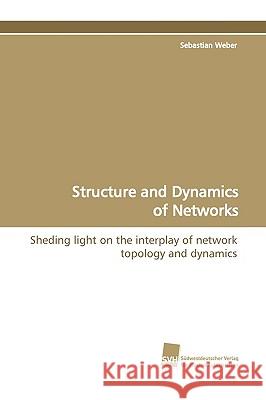Structure and Dynamics of Networks » książka
Structure and Dynamics of Networks
ISBN-13: 9783838107196 / Angielski / Miękka / 2009 / 116 str.
Networks have become a general concept to model the structure of arbitrary relationships among entities. The framework of a network introduces a fundamentally new approach apart from classical' structures found in physics to model the topology of a system. In the context of networks fundamentally new topological effects can emerge and lead to a class of topologies which are termed complex networks'. The concept of a network successfully models the static topology of an empirical system, an arbitrary model, and a physical system. Generally networks serve as a host for some dynamics running on it in order to fulfill a function. The question of the reciprocal relationship among a dynamical process on a network and its topology is the context of this Thesis.
Networks have become a general concept to model the structure of arbitrary relationships among entities. The framework of a network introduces a fundamentally new approach apart from `classical structures found in physics to model the topology of a system. In the context of networks fundamentally new topological effects can emerge and lead to a class of topologies which are termed `complex networks. The concept of a network successfully models the static topology of an empirical system, an arbitrary model, and a physical system. Generally networks serve as a host for some dynamics running on it in order to fulfill a function. The question of the reciprocal relationship among a dynamical process on a network and its topology is the context of this Thesis.











